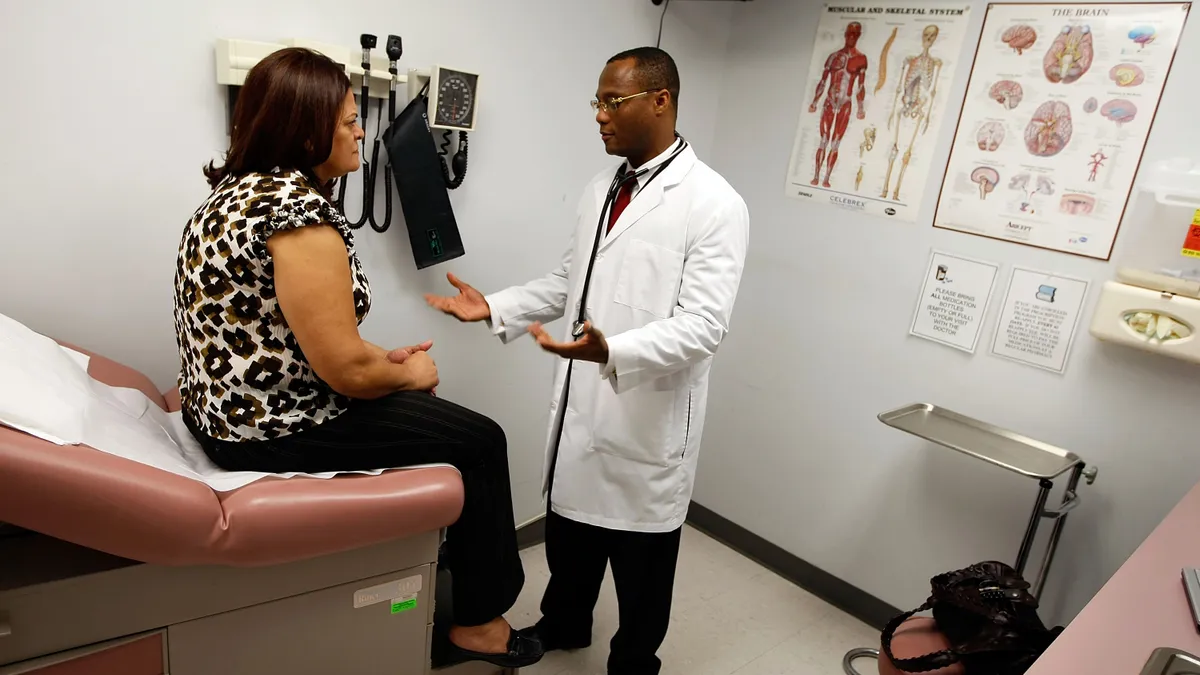Dive Brief:
- About 90% of privately insured adults in a recent joint survey by the Employee Benefit Research Institute and Greenwald Research said that they were at least somewhat satisfied with the ease of selecting a health plan during open enrollment, according to a press release published Thursday.
- Enrollees also were largely satisfied with the amount of information and materials provided by employers in order to understand their plan choices, and about 90% said they were satisfied with the amount of time they had to make a decision. Most said they were satisfied with their health plans overall, but high-deductible health plan enrollees were less likely to be “extremely” or “very” satisfied than those in traditional plans.
- On the plan design front, enrollment in health savings account-eligible plans “appears to have leveled off,” EBRI and Greenwald Research said, while enrollment in non-HSA-eligible, high-deductible plans fell from 12% to 9% between 2022 and 2023. Most enrollees said their health plans had not changed in the last two years.
Dive Insight:
EBRI’s data may prove at least somewhat reassuring to HR and compensation and benefits departments, given the complexity of the health insurance ecosystem.
Employees who understand their benefits tend to be happier and enjoy a sense of greater stability at work, according to a 2023 MetLife study, but the company found that 44% of employees had not consulted others before enrolling in benefits in 2022. Additional 2023 data from benefits education firm Optavise found that 22% of workers wanted more support on how to choose a health plan.
Providers have sought more streamlined and simplified experiences that connect health benefits to broader well-being packages. That may in part be a response to data showing that, while employees appreciate having more information to make benefits decisions, they might not have much time to sift through everything on their own.
Projected 2024 healthcare cost increases clock in at above 5% year over year, according to last year’s survey of employer-sponsored health plans by Mercer. Employees are absorbing part of that trend, too, with nearly half of insured U.S. workers inadequately insured in 2022, the Commonwealth Fund found.
Out-of-pocket costs are of particular concern to employees, and a 2022 EBRI report previously found that rising rates of out-of-pocket payments by workers between 2013 and 2019 may have been attributable to uptake of HDHPs. In Thursday’s data, EBRI noted that HDHP enrollees were less likely to be “extremely” or “very” satisfied with out-of-pocket health expenses compared to non-HDHP enrollees.
Health savings accounts present an educational opportunity for employers, Lisa Greenwald, CEO of Greenwald Research, said in the press release. “Many accountholders feel having more information would make them more likely to invest their unused funds,” Greenwald added.













